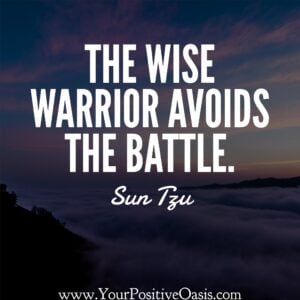Sun Tzu’s “The Art of War” is a classic Chinese treatise on strategy, warfare, and leadership. Written over 2,500 years ago, it continues to inspire military strategists, business leaders, and people from various walks of life. Its principles transcend the context of war and find relevance in modern-day challenges. Here are 10 quotes from this timeless masterpiece that still resonate today.
1. “In the midst of chaos, there is also opportunity.”
Relevance: This quote emphasizes adaptability and finding opportunities even in adverse conditions. In the business world, it reminds leaders to turn challenges into avenues for growth.
2. “The supreme art of war is to subdue the enemy without fighting.”
Relevance: Achieving goals without direct confrontation or unnecessary resources suggests the value of strategy over brute force. Diplomacy and negotiation in modern contexts often reflect this principle.
3. “Opportunities multiply as they are seized.”
Relevance: Taking the initiative can lead to more opportunities. Entrepreneurs and innovators often experience this when one successful venture opens doors to more possibilities.
4. “All warfare is based on deception.”
Relevance: While not advocating dishonesty, this emphasizes the importance of strategy, foresight, and not revealing one’s full intentions prematurely.
5. “When you surround an army, leave an outlet free. Do not press a desperate foe too hard.”
Relevance: Providing opponents with a graceful exit can prevent unnecessary conflict and backlash. This is applicable in negotiations and competitive business environments.
6. “Even the finest sword plunged into salt water will eventually rust.”
Relevance: No matter how skilled or powerful, everyone has vulnerabilities. It’s essential to be aware of our weaknesses and not become complacent.
7. “Strategy without tactics is the slowest route to victory. Tactics without strategy is the noise before defeat.”
Relevance: A vision without a plan and action is futile. Likewise, random actions without a guiding vision can lead to disaster.
8. “He will win who knows when to fight and when not to fight.”
Relevance: Timing is crucial. In modern scenarios, this can relate to launching a product, initiating a conversation, or making a strategic move.
9. “There is no instance of a nation benefiting from prolonged warfare.”
Relevance: Protracted conflicts, whether in business or personal relationships, drain resources and morale. Seeking timely resolutions is often in everyone’s best interest.
10. “Know yourself and you will win all battles.”
Relevance: Self-awareness is key. Understanding one’s strengths, weaknesses, desires, and fears is essential in making informed decisions and leading effectively.
Conclusion
“The Art of War” is more than just a book about warfare; it’s a study of human nature, strategy, and leadership. Its teachings continue to inspire and offer insights into modern challenges, making it a timeless guide for anyone looking to navigate the complexities of life with wisdom and strategy.


